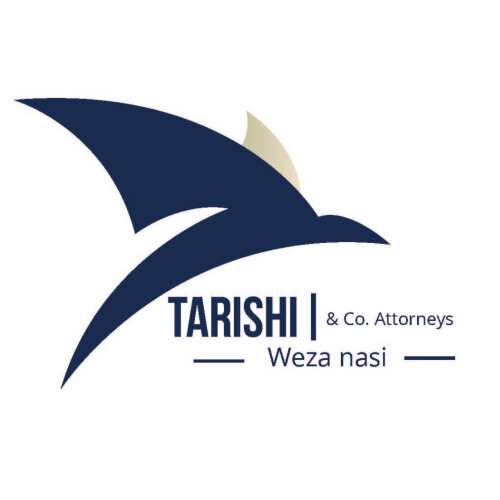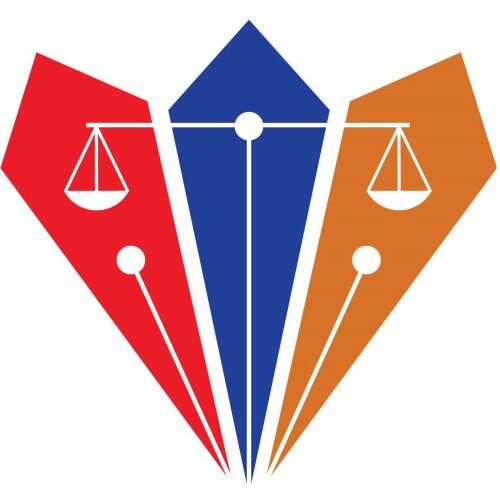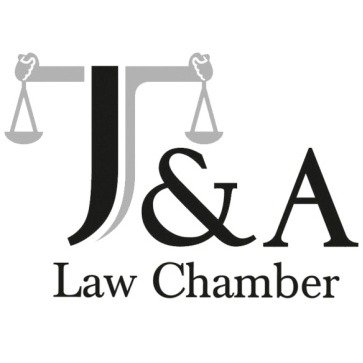Best Corporate & Commercial Lawyers in Tanzania
Share your needs with us, get contacted by law firms.
Free. Takes 2 min.
Or refine your search by selecting a city:
List of the best lawyers in Tanzania
About Corporate & Commercial Law in Tanzania
Corporate and commercial law in Tanzania governs the creation, operation, and dissolution of companies and regulates commercial transactions and business dealings. This area of law is essential for both local and foreign investors, entrepreneurs, and businesses of all sizes. Tanzanian corporate laws aim to foster a stable business environment, provide investor protection, and ensure fair competition in the marketplace. The legal framework covers company formation, contracts, mergers and acquisitions, regulatory compliance, and more.
Why You May Need a Lawyer
There are many situations in which consulting a lawyer specializing in corporate and commercial law in Tanzania is vital. Whether you are starting a business, entering into complex contractual agreements, or facing regulatory investigations, legal guidance can help protect your interests. Here are some common scenarios where legal assistance is beneficial:
- Registering a new company or business entity
- Drafting, reviewing, or negotiating contracts and agreements
- Resolving commercial disputes or breaches of contract
- Understanding and complying with regulatory requirements
- Managing mergers, acquisitions, or joint ventures
- Handling employment and labour issues within your company
- Protecting intellectual property rights
- Tax planning and compliance
- Addressing issues related to foreign investment or cross-border trade
- Corporate restructuring or winding up a company
Local Laws Overview
Tanzania's corporate and commercial legal landscape is primarily shaped by several key statutes and regulatory bodies. The main statutes include the Companies Act, the Business Registration and Licensing Act, the Fair Competition Act, the Banking and Financial Institutions Act, and the Income Tax Act. Regulatory oversight is provided by bodies such as the Business Registrations and Licensing Agency (BRELA), the Tanzania Revenue Authority (TRA), and the Fair Competition Commission (FCC). Some notable aspects of Tanzanian law relevant to businesses include:
- All businesses must be registered with BRELA and obtain relevant licenses before beginning operations.
- The Companies Act outlines requirements for company formation, management, shareholding, directorship, and reporting.
- There are specific rules governing foreign investment, including restrictions in certain sectors and requirements for local participation.
- Competition law prohibits anti-competitive practices and regulates mergers and acquisitions to prevent monopolies.
- Tax compliance, including Value Added Tax (VAT), corporate tax, and withholding tax, is mandatory for businesses.
- Labour laws set clear standards for employment contracts, worker protection, and dispute resolution.
- Protecting intellectual property rights is essential and requires separate registration of trademarks, patents, or copyrights.
- Commercial dispute resolution can take place in ordinary courts, commercial courts, or through alternative dispute resolution such as arbitration.
Frequently Asked Questions
What types of business entities can I register in Tanzania?
The main business entities you can register in Tanzania include private companies limited by shares, public companies, sole proprietorships, partnerships, and branches of foreign companies. The choice depends on your business plans, structure, and compliance requirements.
How long does it take to register a company in Tanzania?
Company registration typically takes between one to three weeks, depending on the completeness of documentation and compliance with statutory requirements. Engaging a lawyer can help expedite the process.
What is the role of BRELA in corporate matters?
The Business Registrations and Licensing Agency (BRELA) is the government body responsible for registering companies, business names, and intellectual property, as well as maintaining public records related to corporate entities.
Are there restrictions on foreign ownership of companies in Tanzania?
Yes, certain sectors are reserved for Tanzanian citizens, while others may require joint ventures or local investment. Foreign investors must comply with specific regulations and may need to obtain permits from relevant authorities.
What are the tax obligations for companies in Tanzania?
Companies must register with the Tanzania Revenue Authority and comply with corporate income tax, VAT, withholding tax, and other taxes as applicable. Returns must be filed regularly, and taxes paid on time to avoid penalties.
How are commercial disputes resolved in Tanzania?
Disputes may be resolved through ordinary courts, commercial courts, or alternative means such as arbitration and mediation. The choice often depends on contractual agreements between the parties.
Is it necessary to have a written contract for business transactions?
While some contracts may be verbal, written contracts are strongly recommended for clarity and legal enforceability. Some transactions, such as real estate or shares transfer, require written contracts by law.
What is required for compliance with labour laws?
Businesses must provide written employment contracts, adhere to minimum wage laws, ensure safe working conditions, and fulfill requirements for termination or redundancy. Non-compliance can result in legal sanctions.
How can I protect my intellectual property in Tanzania?
You must register trademarks, patents, and copyrights with BRELA or the appropriate authority. Registration grants exclusive rights and is vital for preventing unauthorized use of your intellectual property.
Can a foreign company establish a branch in Tanzania?
Yes, foreign companies can register a branch in Tanzania. The process involves registering with BRELA and complying with local requirements regarding taxation, reporting, and statutory filings.
Additional Resources
For reliable information and assistance regarding corporate and commercial law in Tanzania, you may consult the following resources and government bodies:
- Business Registrations and Licensing Agency (BRELA)
- Tanzania Revenue Authority (TRA)
- Fair Competition Commission (FCC)
- Tanzania Investment Centre (TIC)
- Ministry of Industry and Trade
- Attorney General’s Chambers
- National Board of Accountants and Auditors (NBAA)
- Local law societies and bar associations
Next Steps
If you need legal assistance in corporate and commercial matters, follow these steps:
- Identify your specific needs, such as company registration, contract drafting, or dispute resolution.
- Gather all relevant information and documents related to your issue.
- Consult a qualified lawyer or legal firm that specializes in corporate and commercial law in Tanzania.
- Discuss your objectives, timelines, and costs with your lawyer before commencing any legal process.
- Ensure ongoing compliance with Tanzanian laws by seeking regular legal advice as your business grows and evolves.
Taking early legal advice can help you avoid unnecessary risks, ensure smooth operations, and support the long-term success of your business in Tanzania.
Lawzana helps you find the best lawyers and law firms in Tanzania through a curated and pre-screened list of qualified legal professionals. Our platform offers rankings and detailed profiles of attorneys and law firms, allowing you to compare based on practice areas, including Corporate & Commercial, experience, and client feedback.
Each profile includes a description of the firm's areas of practice, client reviews, team members and partners, year of establishment, spoken languages, office locations, contact information, social media presence, and any published articles or resources. Most firms on our platform speak English and are experienced in both local and international legal matters.
Get a quote from top-rated law firms in Tanzania — quickly, securely, and without unnecessary hassle.
Disclaimer:
The information provided on this page is for general informational purposes only and does not constitute legal advice. While we strive to ensure the accuracy and relevance of the content, legal information may change over time, and interpretations of the law can vary. You should always consult with a qualified legal professional for advice specific to your situation.
We disclaim all liability for actions taken or not taken based on the content of this page. If you believe any information is incorrect or outdated, please contact us, and we will review and update it where appropriate.
Browse corporate & commercial law firms by service in Tanzania
Tanzania Attorneys in related practice areas.
Browse corporate & commercial law firms by city in Tanzania
Refine your search by selecting a city.















